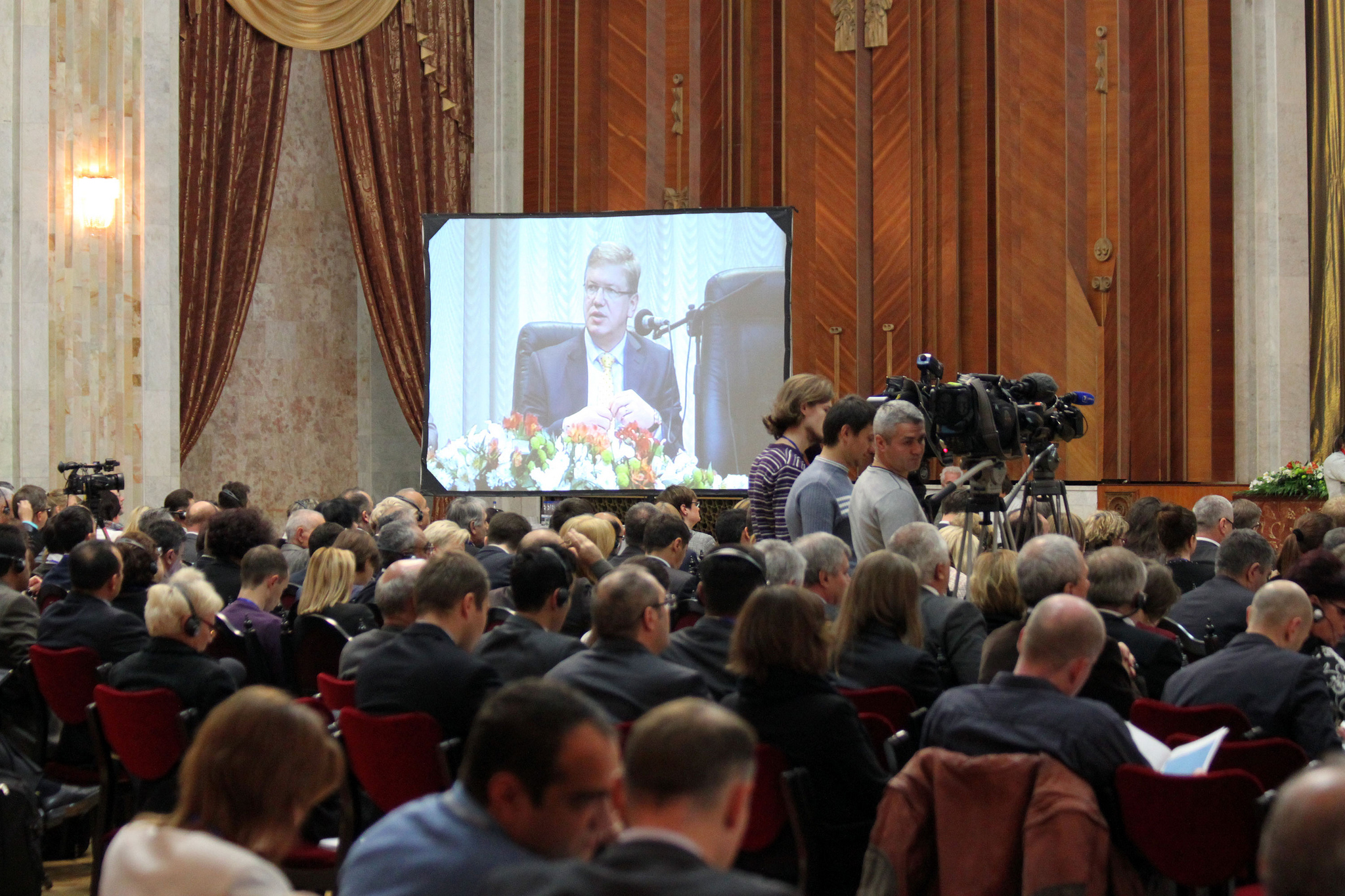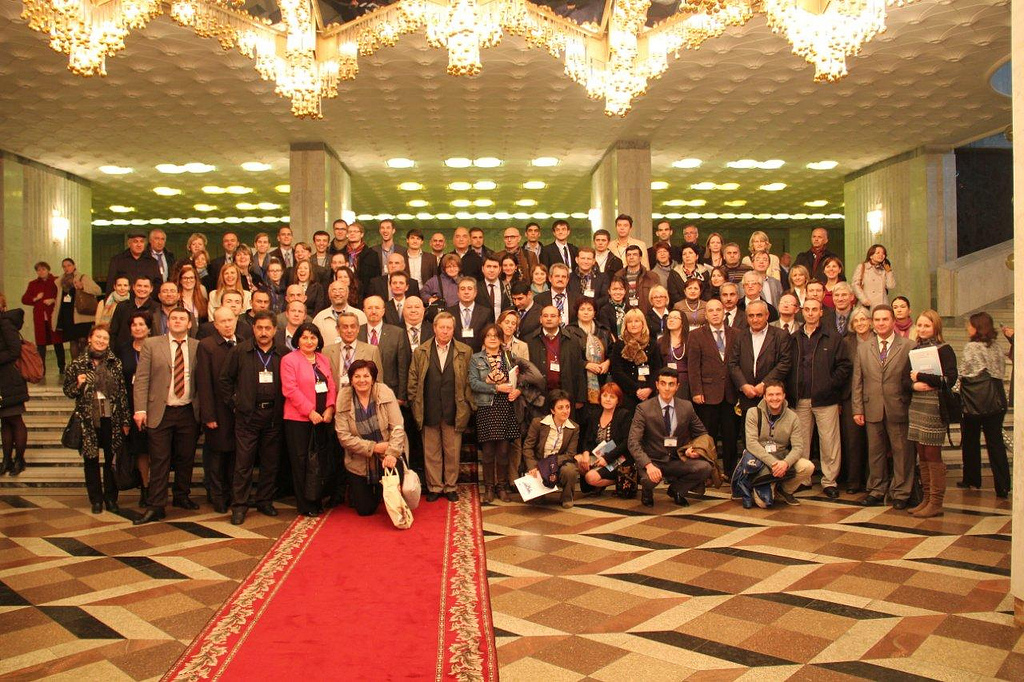|
IN THE SPOTLIGHT |
Eastern Partnership Civil Society Forum
|
|
From Brussels to Batumi: Eastern Partnership Civil Society Forum celebrates its 5th anniversary
Established in the wake of the Eastern Partnership Summit in Prague in 2009, the Eastern Partnership Civil Society Forum supports the development and exchange of experience of civil society organisations from the six EaP countries and from the EU. The Forum encompasses a diverse community of civil society organizations. Some of the members are well-established NGOs; others have started more recently - smaller grassroot groups. Despite some challenges emanating from this diversity of organisations, the CSF has managed to give civil society a stronger voice at both the domestic and European level. One of the participants and a former Co-Chair of the Steering Committee of the EaP CSF, Krzysztof Bobinski has hailed the CSF as an effective mechanism for channelling information from civil society to European institutions and back, closely monitoring the reform process in the EaP, serving as a watchdog, and promptly responding to developments on the ground, expressing the consolidated position of pro-European civil society organisations. The annual assemblies of the Forum have taken place in Brussels (2009), Berlin (2010), Poznan (2011), Stockholm (2012) and Chisinau (2013). Each of the assemblies have shown not only an increase in membership of the Civil Society Forum, but also a growing unity and impact of these groups on the development of their respective societies. These assemblies have demonstrated that the Forum, as an Eastern Partnership stakeholder, is a great tool to bring the societies of the Eastern Partnership countries closer to each other and to Europe. The annual assembly is the best-known component of the EaP CSF. At the most recent annual assembly in Moldova in 2013, with more than 250 participants from 28 countries in attendance, ten key resolutions and statements were adopted. Two panels, five working groups and over sixteen subgroups focused on major policy issues concerning developments in EaP countries. During the panels the participants discussed the context of Association Agreements before and after the Summit in Vilnius and assessed reform processes in EaP countries with the help of European Integration Index. The key message of the participants of the Forum is reflected in the General Statement adopted stating that Forum ‘reiterates its support for the Eastern Partnership (EaP) as an effective and peaceful mechanism of promoting democratic reforms including the establishment of the rule of law and sustainable market mechanisms in the six EaP countries: Armenia, Azerbaijan, Belarus, Georgia, Moldova and Ukraine, and calls on the EU member states and EaP governments to retain its multilateral character’. And that the ‘progress on Association Agreements (AAs) by some of the EaP countries should not cause major differences in the treatment of EaP countries by the EU’ in general.
TheForum is usually attended by high-level government officials from the EaP countries and the EU member states, as well as representatives of the EU institutions. Štefan Füle, the European Commissioner for Enlargement and European Neighbourhood Policy, and a big friend of the Forum, opened a number of annual assemblies - a tradition to be hopefully continued by the new Commission. Other high-ranking EU officials and those from the Eastern Partnership countries and the EU member states also took part in the Forum’s assemblies. The former European Commissioner for Eastern Neighbourhood Benita Ferrero-Waldner praised the EaP CSF’s efforts in a debate that strengthens democracy, good governance, economic reform and energy security in EaP countries, as well as the EU. Besides being a platform for civil society organisations in the Eastern Partnership countries, the CSF has actively engaged in policy advocacy. It has successfully advocated for the launching of the Civil Society Facility. The National Platforms and the Steering Committee contributed to the drafting of the Roadmap to the Eastern Partnership’s Vilnius Summit. The Steering Committee has also lobbied the European Parliament to send an observation mission to the presidential elections in Azerbaijan in 2013. The Georgian National Platform played a key role in the conceptualisation of the “European Integration Communication and Information Strategy of Georgia” (2014–17) in cooperation with Georgia’s State Ministry for European and Euro-Atlantic Integration. Most importantly, the members of the national platforms of the CSF have played an active role in advocating for the recent signatures of the Association Agreements of Georgia, Moldova and Ukraine with the European Union. Currently civil society organisations of the National Platforms in Georgia, Moldova, and Ukraine are actively involved in establishing their respective Civil Society Platforms, which will act as instruments of bilateral cooperation between the EU and civil society representatives envisaged by the Association Agreements with the EU. Forum’s members in the six EaP countries have actively engaged in civic activism, whistleblowing government corruption and asking for more transparency and increased participatory democracy and largely contributed to the decision-shaping process related to European integration. While playing lead roles in their societies in terms of democracy promotion, these organisations have also sought to engage a larger public into the debates regarding the direction the society is taking and the needed reforms.
As the former Foreign Minister of Sweden and one of the founders of the Eastern Partnership Carl Bildt put it: “The Eastern Partnership is not an answer to all the problems and difficulties that the six partners are facing. Nevertheless, it does represent a clear commitment by the EU to lend its political and economic support to their transition and reform – a process that should bring prosperity and stability to the whole region”. The annual assembly in Batumi is a opportunity for the civil society from the EaP countries and the EU as well as donors and government officials to assess the situation in the region and formulate the priorities for the common agenda in facilitating democratic, economic and social reform of the Eastern Partnership countries. The annual assembly in Batumi will continue to consolidate the achievements made at the level of civil society and pave the way for new initiatives in light of a new regional context with Association Agreements in place in 3 of the EaP countries, deteriorating human rights situation in Azerbaijan and the security challenges faced by the region.
Draft Agenda of the Forum 2014
|
Project funded by the European Union
![]()








 This year, on the 20-21 of November, the Eastern Partnership Civil Society Forum (EaP CSF) is holding its 6th annual meeting in Batumi, Georgia. In the five years since its establishment, the platform has been able to transform itself from a meeting of civil society representatives into an institutionalised policy forum, where an exchange of ideas and best practices brings together partners from six Eastern Partnership (EaP) countries - Armenia, Azerbaijan, Belarus, Georgia, Moldova, Ukraine and the EU with the common goal of expanding the European integration processes towards the Eastern Neighbourhood.
This year, on the 20-21 of November, the Eastern Partnership Civil Society Forum (EaP CSF) is holding its 6th annual meeting in Batumi, Georgia. In the five years since its establishment, the platform has been able to transform itself from a meeting of civil society representatives into an institutionalised policy forum, where an exchange of ideas and best practices brings together partners from six Eastern Partnership (EaP) countries - Armenia, Azerbaijan, Belarus, Georgia, Moldova, Ukraine and the EU with the common goal of expanding the European integration processes towards the Eastern Neighbourhood. 

.jpg)
